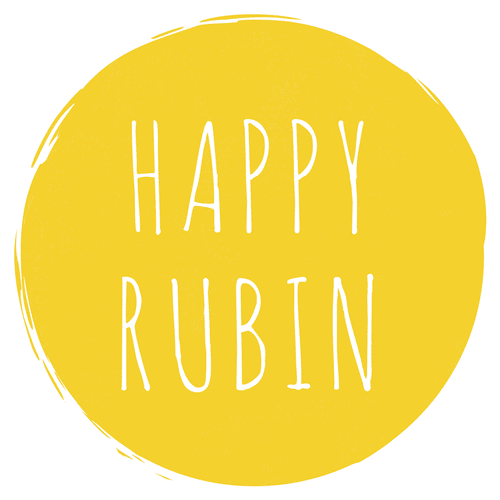![How To Deal With Sensory Overload [9 Tips For Overstimulation]](https://happyrubin.com/wp-content/uploads/2019/12/ik-ben-overprikkeld-150x150.jpg)
How To Deal With Sensory Overload [9 Tips For Overstimulation]
![How To Deal With Sensory Overload [9 Tips For Overstimulation]](https://happyrubin.com/wp-content/uploads/2019/12/ik-ben-overprikkeld-1280x640.jpg)
Do you often feel overstimulated? In this article you will learn how to protect yourself against overstimulation and sensory overload. Read on and apply the tips to be armed and protected against overstimulation…
Contents of this page:
What is overstimulation?
Over-stimulation means that you are exhausted because you receive too much information, or stimuli, through your senses and mental capacities. More stimuli than your nervous system can process properly.
What are stimulations? They can enter sensory, emotionally and cognitively
- Stimuli can be things that we learn, understand and process with our mind. In other words: our brainpower. This can lead to cognitive overstimulation .
- There is also a group of people that we call ’empaths’ in English. These are people who inadvertently take over the emotions and moods of others – and thus become overstimulated. We call this emotional overstimulation.
- Finally, there may be sensory (sensory) overstimulation. This happens when too many stimuli come in via sensory input: feeling, hearing, seeing, smelling …
Who can be affected by overstimulation?
There are three types of groups dealing with overstimulation:
- People with a brain injury can experience sensory overstimulation.
- People with high sensitivity (HSP) can experience sensory and emotional overstimulation.
- Anyone who does not take enough rest and / or demands too much from their nervous system can experience cognitive overstimulation.
The devious danger of cognitive overstimulation

Take a look at the office setting above. There are no flashes of light, it is a quiet room and there is little movement. Quiet right? Wonderfully relaxed, isn’t it? That’s the cunning of cognitive overstimulation. Your brain is indeed processing stimuli because it is performing mental activities .
People who have a brain injury or are highly sensitive know their own pitfalls – which are much more obvious: their senses are not going to make it easy for them and they know it.
In addition, there is a group of people who can become overstimulated through cognitive overstimulation. That group of people consists of … everyone. Everyone has to deal with …
- Thoughts
- Messages from others
- Things to remember
- An agenda that is nicely or well filled
- Deadline pressure
- Multitasking
- Information to process
- Projects and schedules
- Long-term communication with colleagues and customers
- Expectations
- Choices
Phases of overstimulation
In this article about burnout you will find an overview of the phases you could go through before you end up in a burnout – through increasing overstimulation. Before it gets that far, however, it is smart to do prevention. Let’s get to the tips …
Tip 1 – Create a low-stimulus environment with these two actions
Shall I tell you the two things you can do to instantly create an environment that is 99% more low-stimulus? Here they come …
- Do not work in a shared office. So work in a private office – an enclosed space – where no one else goes.
- Set your phone to airplane mode or off by default. You can always call back or refer people to the email in your voicemail message. You also switch off your desktop stimuli, for example by blocking all kinds of websites with the ‘ Freedom ‘ app .
Tip 2 – Relax in the weekends and evenings

Saturdays and Sundays are actually intended as rest days without mental activity. Even the evenings are not intended for mental work. In the evenings it is simply more difficult to process cognitive stimuli than in the morning. In the morning you are fresh and you complete a task in half an hour, while in the evening you would do an hour on the same task.
Tip 3 – Stop looking for distractions
Being distracted has unfortunately become the norm. Our brain is constantly looking for stimuli because it has learned that dullness is unbearable. If you have nothing to do for a while, your brain will start to panic. It wants to experience, do or read something. Stimuli, something stimulating. Anything but that boringness.
Look, a nice conversation there … a screen here … daydreaming about there … another screen here … worrying … looking for entertainment … checking media … using technology … checking messages. … scroll through the group app … check Facebook …
Can you undo it? That the search for distraction has become normal for many people?
Tip 4 – Stop the FOMO stimuli
Do you know what one of the causes of burnout is? FOMO , or choice stress, in other words: wanting all kinds of things because you can see on social media that other people are also doing all kinds of fun things. How do you stop this? Your mobile provides those FOMO incentives. But also your desktop and checking your emails.
I once had a fever for three consecutive weeks. When I finally seemed healed, I immediately got behind my computer to process my emails. Immediately the fever returned mercilessly …
Tip 5 – Understand that your mind has to be started over and over again

Consider cycling. It takes energy to get going, but once you are on the move, it hardly costs any energy.
If you are just waiting for your bike at a traffic light, and you want to cycle away again, it takes a lot of energy to get moving. Once you are on the move, it takes less and less energy to keep moving.
That’s how attention works too. If you keep getting distracted, it is as if you keep cycling 10 meters, decelerating, dismounting and cycling 10 meters again. It takes a huge amount of energy without taking you anywhere.
Fragmenting your attention wastes your energy. You are pulled in all directions and you have to hold up several balls. Go for continuous attention!
Daniel Kahneman described in Our Fallable Thinking how our mind is like a computer when it is busy with a task. Whenever you get distracted from that task and then want to resume your task, you have to restart that entire computer. It takes a few minutes before you regain the ‘flow’ of your focus. “Ah, that’s where I left off!”
And let an office job just cause the worst stimuli, so that you have to restart your brain’s computer a hundred times a day …
Tip 6 – Do you do office work? Be super strict and make rigorous changes
Suppose you are working at your desk for an hour . In that one hour a number of things happen:
- The phone will ring about 5 times.
- You will be asked about 3 times.
- A joke is made twice.
- A colleague answers the phone 4 times and therefore talks in your presence for a total of 15 minutes.
- You answer the phone yourself once and talk for about 5 minutes.
- You are greeted once by a colleague who enters and tells you what his weekend was like. This will take 5 minutes.
- You will receive a popup notification from your email and / or a notification on your phone 5 times.
These are about 20 stimuli in an hour , while you also just have to focus on your tasks! In addition, your brain’s computer has to restart several times in that hour.
And if a workday has 8 hours, all those stimuli have a debilitating effect on you. Mentally, you are being hacked, without seeing it coming from the outside.
By the way, according to some theories, it takes 20 minutes to continue working on something with the same concentration as before you were interrupted. It is an outright attack on your nervous system.
Do you know what is recognizable to many people? “I often work overtime. I am actually glad that all colleagues have gone home, because then I can finally continue working!”
Anyway, what’s the solution? Do this, just like me: at the office, I’m an antisocial bastard. In the morning I stick to a short ‘good morning’, respond curtly, do not go into jokes and conversations further, cut off my energy from contact, do not cut conversations and do not disturb anyone. All those things are necessary to eliminate the crafty office incentives.
Tip 7 – Make of rest your important value

Do you know what I experienced when I had a fever and was forced to rest for three weeks? I was finally out of worry – and I had a calm, peaceful mind.
Now rest is my most important value, because that was really wonderful. Rest finally released me from all kinds of stimuli. Then I was forced to stay in bed because I was ill, but now I rest independently.
Just before I got sick, I said this will be the year of focus. In the picture that I had there, there was not much room for rest. My year had started with an adjustment after my fever weeks. I had developed a fever and that put me in rest mode. So: that year became the year of focus so that there is also more opportunity for rest. That is an important fruit of focus. And that rest in turn feeds the focus.
Here you can read how to inventory and change your values.
Tip 8 – Apply effectiveness and focus
Do you know what effectiveness and focus mean? That means: One thing. One stimulus. Don’t involve all kinds of other things as well – with all the extra incentives that come with it. Here you can read more about effectiveness and here you can read all about focus.
Tip 9 – How do I become less sensitive? HSP tips

Also check out this article about HSP.
On your luck!

![5 Best Self Care Tips For College Students [#1 Advice]](https://happyrubin.com/wp-content/uploads/2021/09/the-best-self-care-tips-for-college-students-440x264.jpg)
![How To Stick To New Year’s Resolutions: 9 Tips [Smart & Sure Ways]](https://happyrubin.com/wp-content/uploads/2019/12/tips-voor-goede-voornemens-440x264.jpg)
![How To Stop Being So Hard On Yourself [9 Great Tips]](https://happyrubin.com/wp-content/uploads/2019/12/we-moeten-zoveel-van-onszelf-en-anderen-150x150.jpg)

![19 Best Ice Breaker & Get-To-Know-Eachother Games [Fun & Simple]](https://happyrubin.com/wp-content/uploads/2018/02/leukste-ijsbrekers.jpeg)
![Becoming More Social: 41 Tips [Improving Social Skills] [List]](https://happyrubin.com/wp-content/uploads/2018/06/sociale-vaardigheden1.jpeg)
![How to start a conversation with anyone: 15 tips [Making contact]](https://happyrubin.com/wp-content/uploads/2017/08/gesprekstechnieken1.jpeg)
![372 Friend Tag Q&A Questions [Best Friend Quiz]](https://happyrubin.com/wp-content/uploads/2019/05/best-friend-tag-vragen-voorbeelden.jpg)



![Clingy & controlling behavior of partner/date [Extreme examples]](https://happyrubin.com/wp-content/uploads/2020/06/claimerig-gedrag-van-partner-eigenschappen-en-voorbeelden-150x150.jpg)

![How to recognize if a man is in love [Signals & his body language]](https://happyrubin.com/wp-content/uploads/2020/05/verliefd-gedrag-van-mannen-herkennen-150x150.jpg)


![Free will and religion / theology [Verses & Quotes on free will]](https://happyrubin.com/wp-content/uploads/2020/10/religion-on-free-will-quotes-1050x640-1-150x150.jpg)

![Dealing With Setbacks & Hardship [Lessons & Examples]](https://happyrubin.com/wp-content/uploads/2018/11/omgaan-met-tegenslag-tips-hoe-dan.jpeg)
![NLP Agreement Frame: Use these exact sentences [Examples]](https://happyrubin.com/wp-content/uploads/2020/10/agreement-frame-nlp-1125x640-1-440x264.jpeg)
![122 Best Comebacks In Any Situation [Best Examples]](https://happyrubin.com/wp-content/uploads/2020/06/beste-comebacks-technieken-tips-440x264.jpg)
![Using Hypnosis to Stop Smoking [HowTo]](https://happyrubin.com/wp-content/uploads/2020/05/stoppen-met-roken-door-hypnose-150x150.jpg)
![Presuppositions language pattern: meaning & examples [NLP]](https://happyrubin.com/wp-content/uploads/2020/04/wat-zijn-vooronderstellingen-150x150.jpg)
![Peripheral Vision: Meaning & Exercise [Essential Skill]](https://happyrubin.com/wp-content/uploads/2020/04/perifeer-zicht-trainen-tips-150x150.jpg)

![How To Start A Coaching Business [21 Smart Tips]](https://happyrubin.com/wp-content/uploads/2018/11/coachingpraktijk-starten-tips.jpeg)
![How to make dreams come true? [33 tips to realize dreams 100%]](https://happyrubin.com/wp-content/uploads/2018/05/dromen-mijlpalen.jpeg)
![How To Become Rich? 27 Millionaire Tips [Guaranteed To Work]](https://happyrubin.com/wp-content/uploads/2018/01/hoe-kan-ik-rijk-worden.jpeg)
![77 Best Online Marketing Tools [Recommendations] [Also Free]](https://happyrubin.com/wp-content/uploads/2018/08/beste-onlne-marketing-tools-tips.jpeg)
![Complete List Of Virtues & Qualities [Including Explanation]](https://happyrubin.com/wp-content/uploads/2018/12/kernkwaliteiten-uitleg.jpeg)
![Being Attentive: How Do You Do That? [Meaning & 9 Tips]](https://happyrubin.com/wp-content/uploads/2019/05/attent-zijn.jpg)
![Being Conscientious: Meaning Of This Virtue [Explained]](https://happyrubin.com/wp-content/uploads/2018/07/Consciëntieus-persoon.jpg)


![Best Books About Burn-Out [Top 10] [Update 2025]](https://happyrubin.com/wp-content/uploads/2020/06/beste-boeken-over-burnout-lijst-440x264.jpg)
![Best Self-love Books [Top 10] [Update 2025]](https://happyrubin.com/wp-content/uploads/2020/04/beste-boeken-over-zelfliefde-aanraders-440x264.jpg)
![Life changing books: 10 books that change your life [2025 Update]](https://happyrubin.com/wp-content/uploads/2020/03/levensveranderende-boeken-tips-150x150.jpg)
![Top 10 Best Books: Recommendations Per Genre [2025 Update]](https://happyrubin.com/wp-content/uploads/2019/12/best-books-per-genre-150x150.png)
![Best Books On procrastination: Must Reads [List] [2025 Update]](https://happyrubin.com/wp-content/uploads/2019/11/beste-boeken-over-uitstelgedrag-tips-150x150.jpg)
![Joe Dispenza: Events To Attend [2025 & 2026] [All Info]](https://happyrubin.com/wp-content/uploads/2020/02/joe-dispenxa-events-440x264.png)
![Best Online Study Options [Online Education Top List]](https://happyrubin.com/wp-content/uploads/2019/03/best-home-study-options-440x264.png)
![Teachable Review & Experiences 2025 [Bad Online Training Tool?]](https://happyrubin.com/wp-content/uploads/2020/02/Teachable-review-ervaringen-150x150.png)
![Audible Review, Experiences & Special Discount [Scam?]](https://happyrubin.com/wp-content/uploads/2020/01/audible-review-ervaringen-150x150.png)
![Guest Posts Wanted [Free & Always Directly Accepted]](https://happyrubin.com/wp-content/uploads/2019/05/gastbloggen-regels.jpg)
